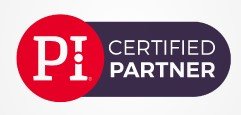
Succession Planning
Succession planning is a critical aspect of organizational sustainability and long-term success. However, numerous challenges can impede effective succession planning efforts.
Some of the Common Challenges Faced in Succession Planning:

Identifying High-Potential Talent:
One of the primary challenges is identifying individuals with the potential to assume key leadership roles in the future. Traditional methods of talent assessment may not provide accurate insights into an individual’s leadership potential, resulting in the risk of overlooking suitable candidates.

Developing Future Leaders:
Developing a pipeline of capable leaders requires a structured approach to leadership development. Many organizations struggle to provide comprehensive training and development programs that effectively groom potential successors for leadership positions.

Retaining Top Talent:
Retaining high-potential employees and preventing them from seeking opportunities elsewhere is crucial for succession planning. Without a robust retention strategy, organizations may lose their most talented individuals, leading to talent gaps in critical leadership positions.

Ensuring Diversity and Inclusion:
Achieving diversity and inclusion in leadership is an ongoing challenge. Organizations must actively address biases and barriers that prevent underrepresented individuals from advancing into leadership roles.
The challenges in succession planning can significantly impact an organization’s readiness to transition leadership. We can partner with you with our scientific data-driven approach and road-tested leadership programs so you can effectively identify and develop potential successors, ensuring a smooth and successful leadership transition.
OVERCOMING THE CHALLENGES IN SUCCESSION PLANNING

Accurate Talent Assessment
Our PI assessment solution is a scientifically validated behavioral assessment tool that helps organizations assess an individual’s workplace behaviors, drives, and motivations. By utilizing PI, organizations can identify high-potential talent based on their natural behavioral fit for specific roles, enhancing the accuracy of succession planning decisions.

Aligning Individual and Organizational Goals:
PI enables organizations to align individual aspirations and motivations with strategic objectives. By understanding an individual’s drivers, organizations can create personalized development plans that nurture their potential and prepare them for future leadership positions.

Enhancing Team Dynamics:
The PI also helps improve team dynamics by identifying behavioral strengths and gaps within teams. This knowledge can facilitate the creation of high-performing teams, increasing the chances of successful succession transitions.

Structured Leadership Development:
we offer comprehensive leadership development programs designed to cultivate a steady stream of leaders at all levels. These programs provide the necessary skills, knowledge, and experiences for potential successors, ensuring a smooth transition when leadership vacancies arise.

Succession Planning Framework:
The LPI programs emphasize the implementation of a well-defined succession planning framework. This framework helps organizations identify critical roles, evaluate potential successors, and create personalized development plans tailored to each individual’s needs.

Building a Leadership Culture:
LPI programs focus on creating a leadership culture within the organization. By emphasizing leadership development at all levels, organizations can foster a culture that values and prioritizes the identification and development of future leaders and can build a strong leadership pipeline.






